
The Enchanting Desert Oasis of Joshua Tree
Joshua Tree, located in Southern California, is a unique blend of rugged desert landscapes and serene natural beauty. It is home to the iconic Joshua Tree National Park, where the Mojave and Colorado deserts converge. This results in a stunning array of flora and fauna, including the fascinating Joshua Trees that give the park its name. Visitors are often struck by the park's surreal rock formations, expansive desert vistas, and star-filled night skies. Beyond the national park, the town of Joshua Tree is a vibrant hub of artistic and cultural activity. Art galleries, music festivals, and quirky shops abound, offering a perfect blend of the natural and the creative. The town's close-knit community is welcoming and passionate about sharing their love for the desert environment with visitors. The local cuisine, heavily influenced by the region's rich agricultural heritage, is an added delight. Outdoor enthusiasts will find endless opportunities for adventure in Joshua Tree. Hiking, rock climbing, and stargazing are just a few of the activities that draw visitors year-round. The park's trails range from easy walks to challenging hikes, ensuring there is something for everyone. For those seeking a more relaxed experience, the area's tranquility and natural beauty provide the perfect setting for reflection and rejuvenation.
Local tips in Joshua Tree
- Visit during the spring or fall for the most pleasant weather and blooming wildflowers.
- Bring plenty of water and sunscreen; the desert sun can be intense even during cooler months.
- Explore the local art scene, including the Noah Purifoy Outdoor Desert Art Museum.
- Check out the Joshua Tree Farmers Market on Saturdays for fresh produce and local crafts.
- If you plan to stargaze, bring a telescope or binoculars for an unforgettable night sky experience.
- Book accommodation well in advance, especially during peak seasons, as it can fill up quickly.
The Enchanting Desert Oasis of Joshua Tree
Joshua Tree, located in Southern California, is a unique blend of rugged desert landscapes and serene natural beauty. It is home to the iconic Joshua Tree National Park, where the Mojave and Colorado deserts converge. This results in a stunning array of flora and fauna, including the fascinating Joshua Trees that give the park its name. Visitors are often struck by the park's surreal rock formations, expansive desert vistas, and star-filled night skies. Beyond the national park, the town of Joshua Tree is a vibrant hub of artistic and cultural activity. Art galleries, music festivals, and quirky shops abound, offering a perfect blend of the natural and the creative. The town's close-knit community is welcoming and passionate about sharing their love for the desert environment with visitors. The local cuisine, heavily influenced by the region's rich agricultural heritage, is an added delight. Outdoor enthusiasts will find endless opportunities for adventure in Joshua Tree. Hiking, rock climbing, and stargazing are just a few of the activities that draw visitors year-round. The park's trails range from easy walks to challenging hikes, ensuring there is something for everyone. For those seeking a more relaxed experience, the area's tranquility and natural beauty provide the perfect setting for reflection and rejuvenation.
When is the best time to go to Joshua Tree?
Iconic landmarks you can’t miss
Joshua Tree National Park
Explore the stunning landscapes and unique ecosystems of Joshua Tree National Park, a desert paradise for adventurers and nature lovers alike.
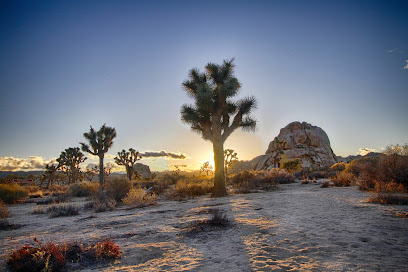
Joshua Tree Visitor Center
Discover the essential starting point for your Joshua Tree adventure at the Visitor Center, filled with insights and information about this unique national park.
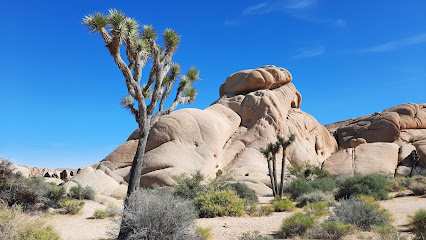
Keys View
Discover the stunning panoramas of Keys View in California's Joshua Tree National Park, where breathtaking landscapes and desert beauty await.
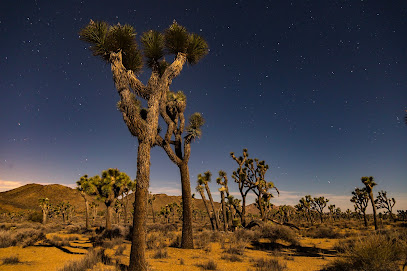
Joshua Tree Saloon
Experience the vibrant atmosphere and delicious grill cuisine at Joshua Tree Saloon, the perfect stop for tourists in the heart of the desert.
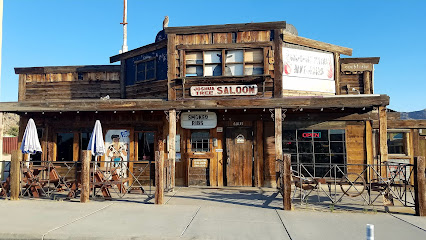
Sam's Indian Food & Pizza
Discover the perfect blend of Indian spices and classic pizza in the heart of Joshua Tree at Sam's Indian Food & Pizza.
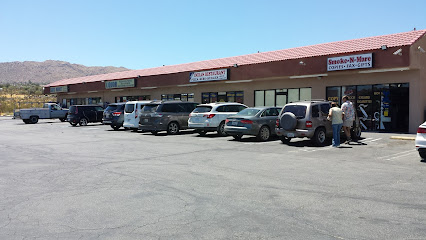
Noah Purifoy Outdoor Desert Art Museum
Discover the extraordinary at Noah Purifoy Outdoor Desert Art Museum in Joshua Tree, where art meets the stunning desert landscape for an unforgettable experience.
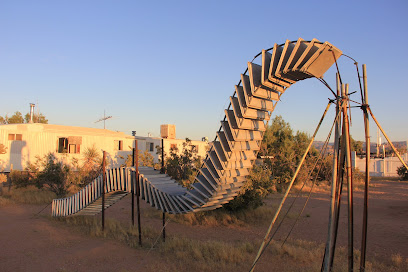
Barker Dam
Explore Barker Dam in Joshua Tree National Park: A Historic Oasis Amidst Stunning Desert Landscapes.
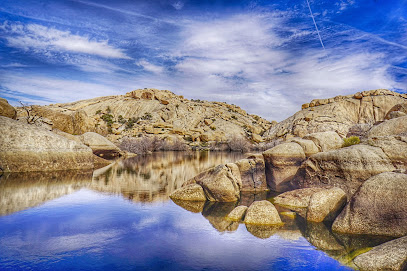
Castañeda's Mexican Food
Experience delicious authentic Mexican cuisine at Castañeda's Mexican Food in Joshua Tree, California. A perfect stop for a satisfying meal!
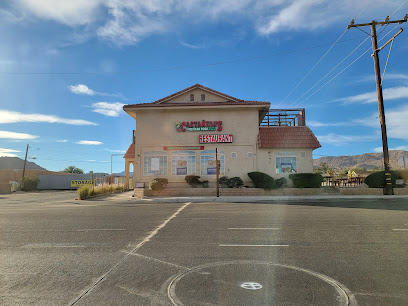
Joshua Tree National Park Visitor Center
Discover the gateway to Joshua Tree National Park, filled with stunning landscapes and unique desert flora and fauna.
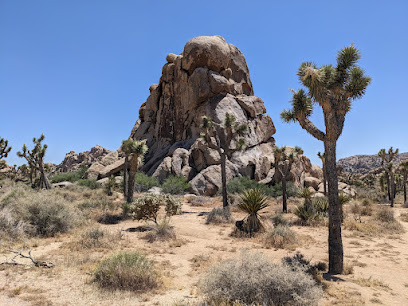
Desert Christ Park
Discover the serenity of Desert Christ Park in Yucca Valley, where art and nature harmoniously blend in a tranquil desert oasis.
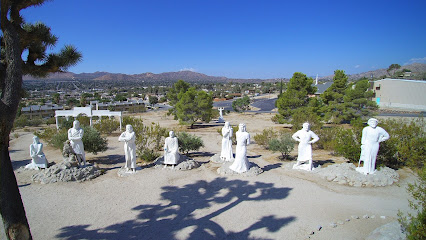
Cliffhanger Guides - Joshua Tree Rock Climbing Adventures
Discover the thrill of rock climbing with expert guidance in the stunning landscapes of Joshua Tree National Park, perfect for all adventure seekers.
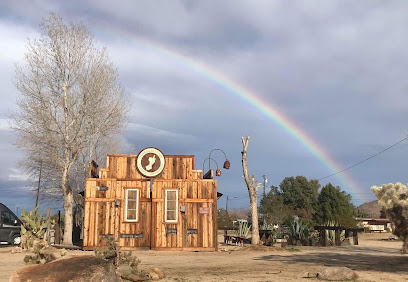
Mojave Guides - Joshua Tree Rock Climbing Guides
Discover the ultimate rock climbing adventure at Mojave Guides in Joshua Tree, where breathtaking landscapes meet expert instruction.
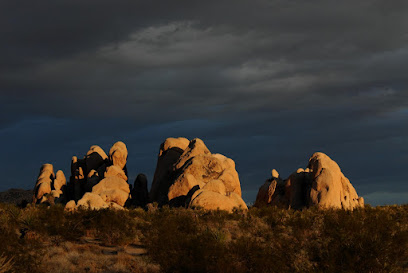
Sky High Pie
Experience the flavors of the desert at Sky High Pie, Joshua Tree's beloved pizza haven, offering artisanal pizzas in a vibrant and artistic atmosphere.
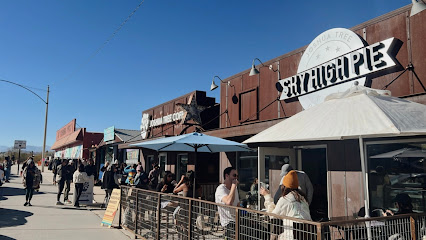
The Station Joshua Tree
Explore The Station Joshua Tree for unique souvenirs, local art, and a charming wedding venue in the heart of the California desert.
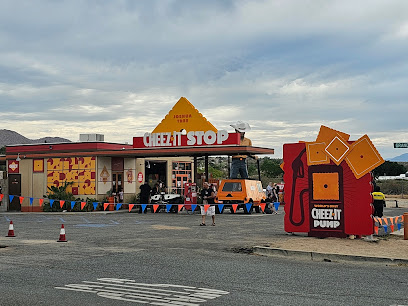
Joshua Tree Certified Farmers' Market
Discover the vibrant Joshua Tree Certified Farmers' Market, where fresh produce and local artistry meet in a unique desert experience.
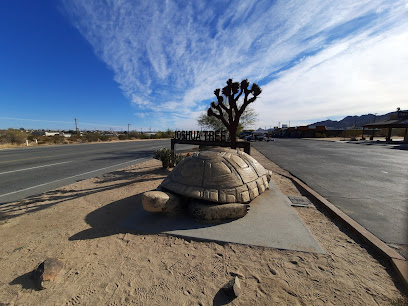
Unmissable attractions to see
Joshua Tree National Park
Discover the stunning landscapes and diverse wildlife of Joshua Tree National Park, a must-visit destination for nature lovers and adventure seekers in California.
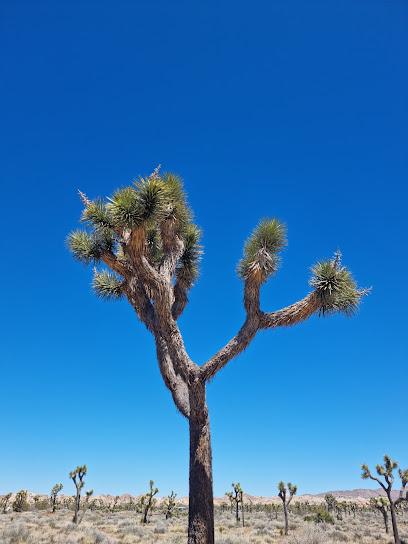
Joshua Tree National Park
Explore the stunning desert landscapes and unique rock formations of Joshua Tree National Park, a must-visit destination for nature lovers and adventurers.
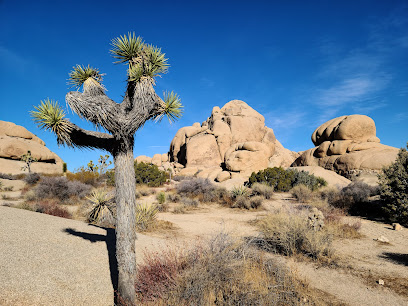
Palm Springs Aerial Tramway
Experience breathtaking views and adventure at the Palm Springs Aerial Tramway, a unique mountain cable car journey in California's stunning desert landscapes.
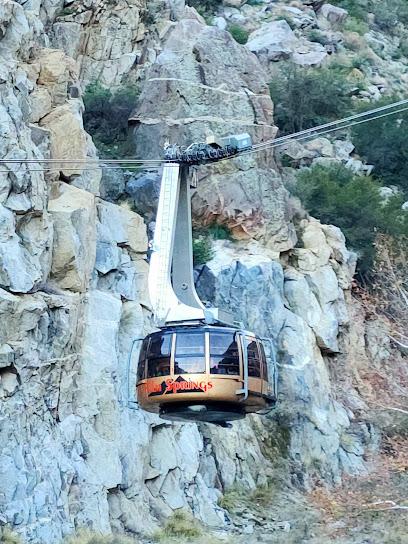
Joshua Tree Visitor Center
Discover the gateway to Joshua Tree National Park at the Visitor Center, where adventure begins with stunning exhibits and expert guidance.
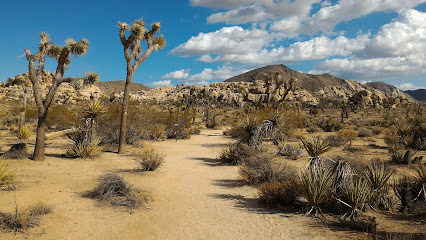
Palm Springs Air Museum
Discover the fascinating history of aviation at Palm Springs Air Museum, featuring vintage aircraft and interactive exhibits in a beautiful desert setting.
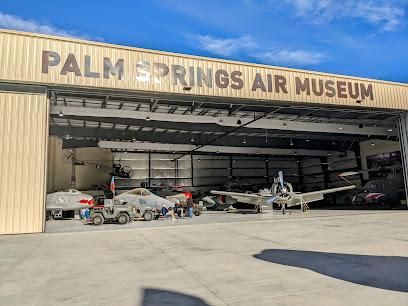
Keys View
Discover the stunning panoramic vistas at Keys View, a must-visit scenic spot in California’s Joshua Tree National Park.

Keys View
Discover breathtaking views of the Coachella Valley and beyond at Keys View in Joshua Tree National Park, a scenic gem for nature lovers and photographers.
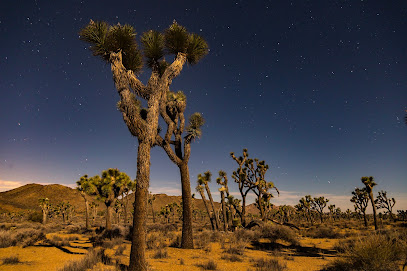
Skull Rock Trail
Explore the iconic Skull Rock Trail in Joshua Tree National Park, where stunning rock formations meet the breathtaking beauty of the California desert.
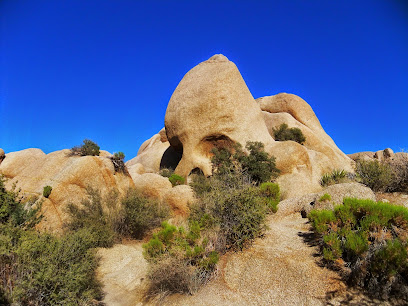
Palm Springs Art Museum
Explore the Palm Springs Art Museum, where contemporary art meets rich cultural heritage in a stunning desert setting, perfect for all art enthusiasts.
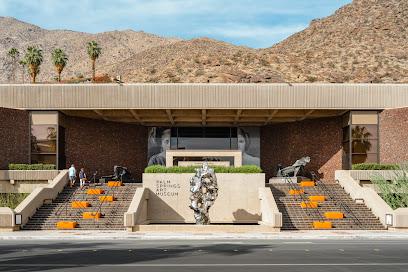
Escape Room Palm Springs
Experience the thrill of adventure at Escape Room Palm Springs, where teamwork meets excitement in immersive puzzle-solving challenges.
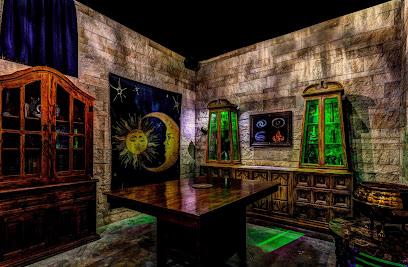
Hidden Valley Nature Trail Trailhead
Explore the stunning Hidden Valley Nature Trail in Joshua Tree National Park, a scenic hiking spot filled with unique rock formations and diverse wildlife.
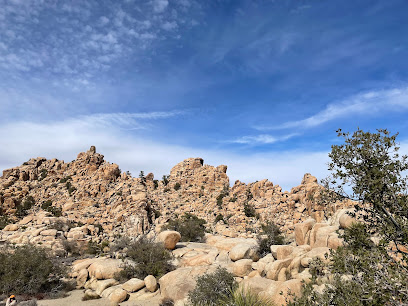
Ruth Hardy Park
Experience the natural beauty and recreational charm of Ruth Hardy Park in Palm Springs, a must-visit destination for nature lovers and outdoor enthusiasts.
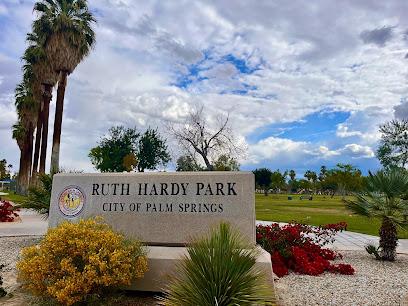
Palm Springs Visitor Center
Explore the best of Palm Springs at the Visitor Center, your gateway to local attractions, dining, and adventure in this stunning desert oasis.
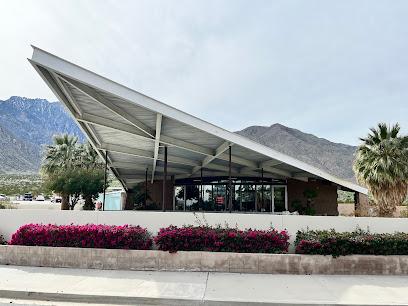
Regal Palm Springs
Discover Regal Palm Springs, your premier destination for cinematic delights and entertainment in the heart of California's desert oasis.
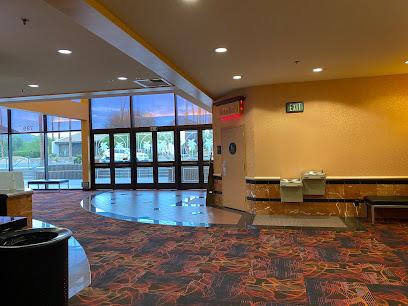
Forever Marilyn
Discover the glamour of Hollywood at Forever Marilyn, a stunning tribute to the iconic actress in the heart of Palm Springs.
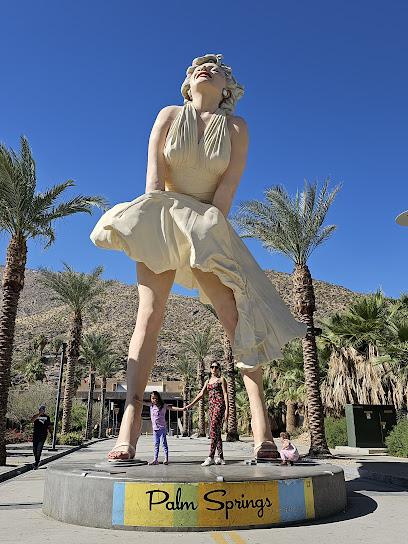
Essential places to dine
Pappy + Harriet's
Discover Pappy + Harriet's in Pioneertown – where mouthwatering barbecue meets unforgettable live music in a rustic Wild West setting.
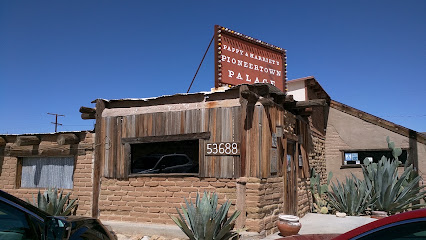
Joshua Tree Saloon
Experience authentic American cuisine at Joshua Tree Saloon – where great food meets vibrant local culture amidst stunning desert landscapes.
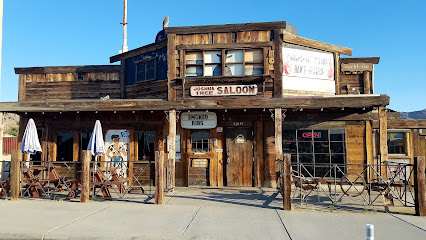
Crossroads Cafe
Experience hearty meals and warm hospitality at Crossroads Cafe in Joshua Tree – where comfort food meets desert charm.
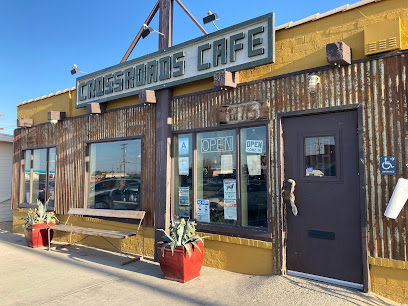
Steak 'n Shake
Discover delicious American cuisine at Steak 'n Shake in Yucca Valley—home of tasty burgers and creamy shakes!
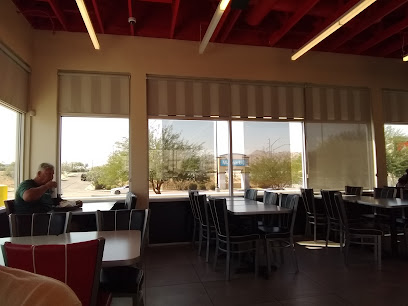
The Rib Co
Experience authentic barbecue at The Rib Co in Twentynine Palms—home to mouthwatering ribs and friendly service.
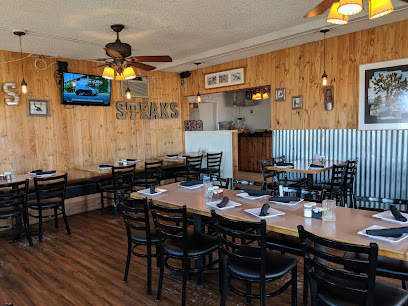
Applebee's Grill + Bar
Experience delicious American cuisine at Applebee's Grill + Bar in Yucca Valley – perfect for families and friends seeking comfort food.
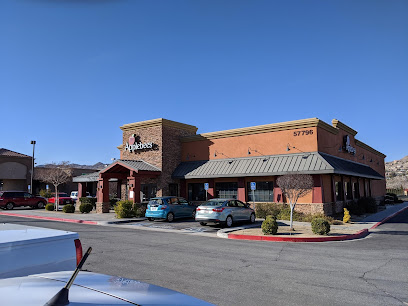
John's Place
Discover authentic American breakfast at John's Place in Twentynine Palms - where hearty meals meet warm hospitality.
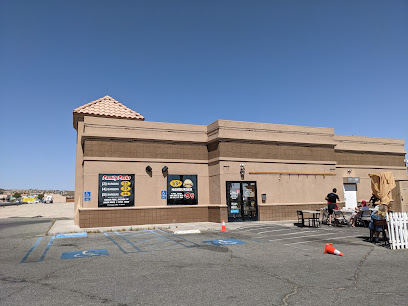
Las Palmas Mexican Cuisine
Experience the rich flavors of traditional Mexican cuisine at Las Palmas in Yucca Valley – where every meal is a celebration.
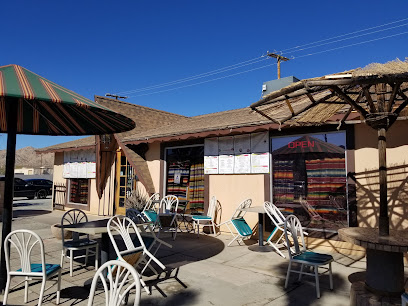
La Casita Azul
Experience authentic Mexican cuisine at La Casita Azul in Yucca Valley—where every dish tells a story.
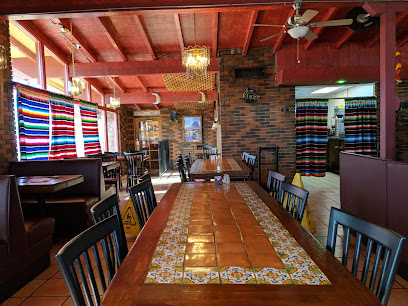
Kitchen in the Desert
Experience exquisite New American and Caribbean cuisine at Kitchen in the Desert, where culinary creativity meets stunning desert views.
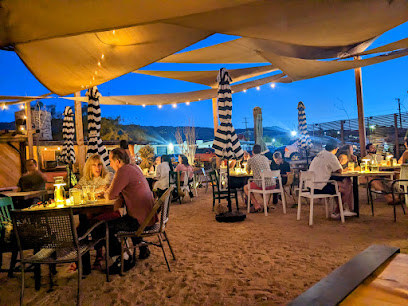
Frontier Café
Experience the charm of Frontier Café in Yucca Valley, where hearty breakfasts meet cozy desert vibes for an unforgettable dining experience.
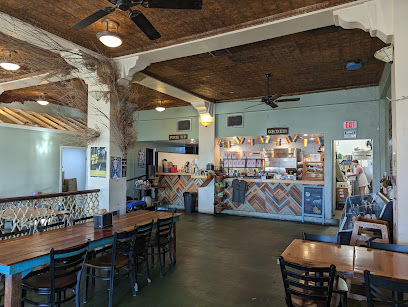
JT Country Kitchen
Discover JT Country Kitchen: Your go-to spot for delicious American breakfasts in the heart of Joshua Tree.
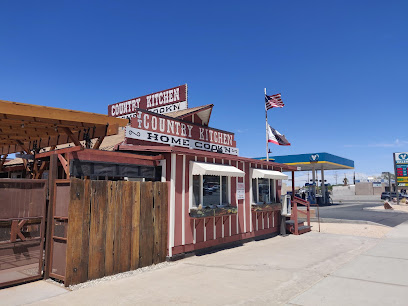
Joshua Tree Coffee Company
Experience exceptional brews at Joshua Tree Coffee Company – where quality meets sustainability amidst stunning desert landscapes.
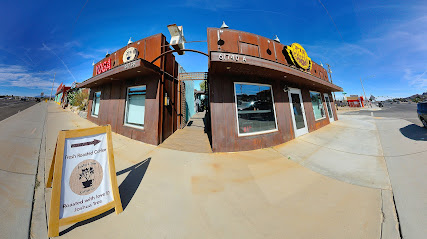
C & S Coffee Shop
Discover delightful breakfasts and aromatic coffee at C & S Coffee Shop in Yucca Valley—your cozy retreat after exploring California's natural beauty.
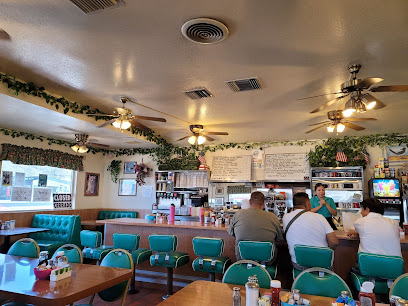
Sam's Indian Food & Pizza
Experience a unique blend of authentic Indian cuisine and classic pizza at Sam's Indian Food & Pizza in Joshua Tree.
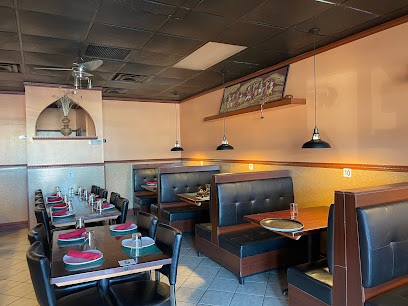
Markets, malls and hidden boutiques
The Station Joshua Tree
Discover unique souvenirs and stunning wedding venues at The Station Joshua Tree, where desert charm meets local artistry.
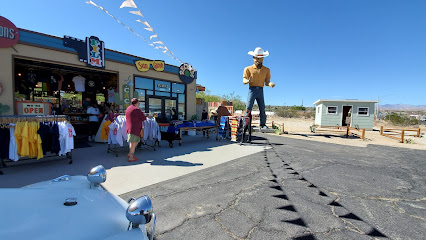
Coyote Corner
Discover unique gifts and local crafts at Coyote Corner, the must-visit gift shop in the heart of Joshua Tree, California.
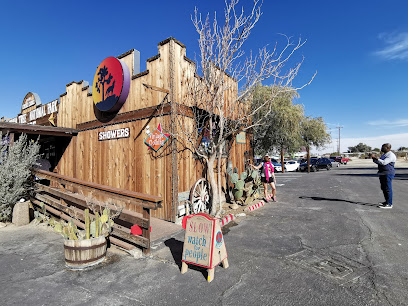
Joshua Tree Rock Shop
Discover the stunning array of rocks, minerals, and unique gifts at Joshua Tree Rock Shop—an essential stop for every desert explorer.
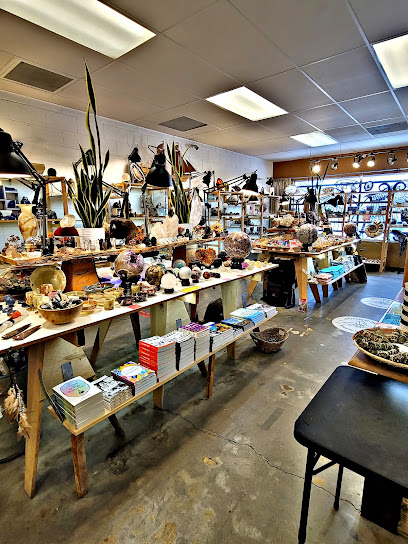
Joshua Springs Thrift Store
Explore the vibrant Joshua Springs Thrift Store in Yucca Valley for unique second-hand treasures and support a great cause.
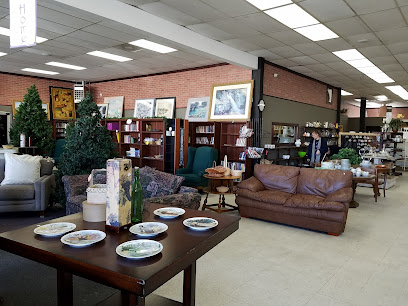
Hoof & The Horn
Explore Hoof & The Horn: A Vintage Clothing Gem in Yucca Valley Offering Unique Styles for Every Fashion Enthusiast.
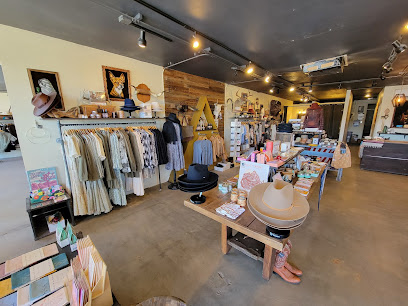
SUN OF THE DESERT
Discover unique gifts, stylish clothing, and vintage treasures at Sun of the Desert in Joshua Tree, California.
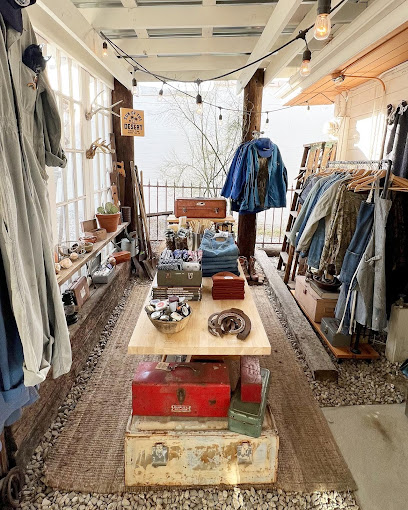
Desert’s Edge Vintage
Explore the charm of vintage fashion at Desert’s Edge Vintage in Yucca Valley, CA, where unique clothing treasures await every visitor.

Desert Curios
Explore Desert Curios in Yucca Valley for unique antiques, vintage clothing, and collectibles that embody the spirit of the desert.
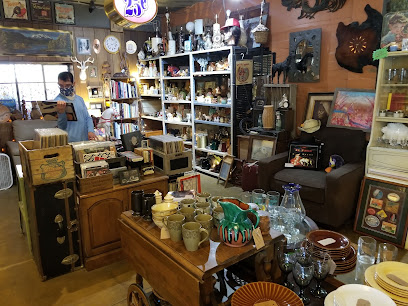
Rock & Rapture Jewelry and Gift Gallery @ The Joshua Tree Art Gallery (JTAG)
Explore Rock & Rapture Jewelry and Gift Gallery in Joshua Tree, where local artistry and unique treasures await every visitor.

Moon Wind Trading Co
Discover Moon Wind Trading Co in Yucca Valley, a boutique treasure filled with vintage finds and natural goods that reflect the spirit of the desert.
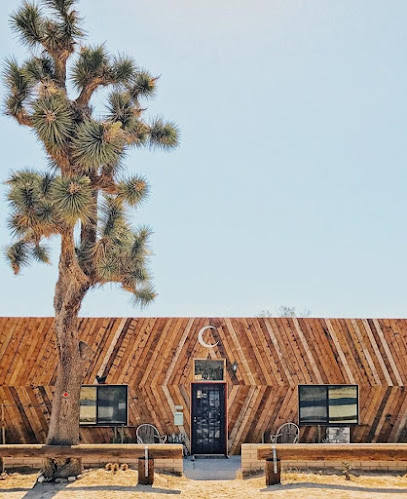
Grateful Desert Apothecary
Explore the essence of wellness at Grateful Desert Apothecary, your local herbal medicine store in the heart of Joshua Tree, California.
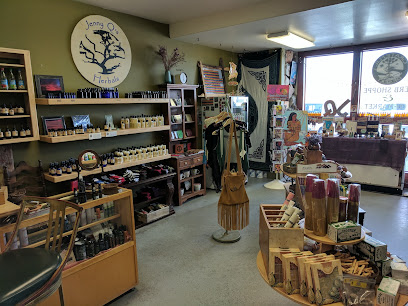
Roaming Travelers - Boutique Shop
Explore Roaming Travelers Boutique Shop in Joshua Tree for unique clothing and local gifts that embody the desert spirit.

Soul Connection
Discover a treasure trove of unique gifts and local art at Soul Connection, the heart of Joshua Tree's creative spirit.
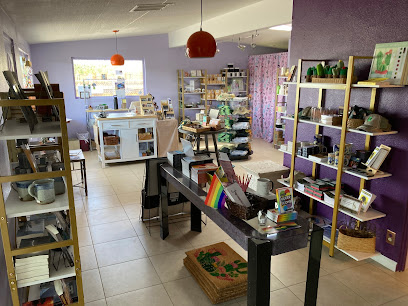
Ricochet Vintage Wears
Uncover unique vintage finds at Ricochet Vintage Wears in Joshua Tree, where each piece tells a story and complements your individual style.
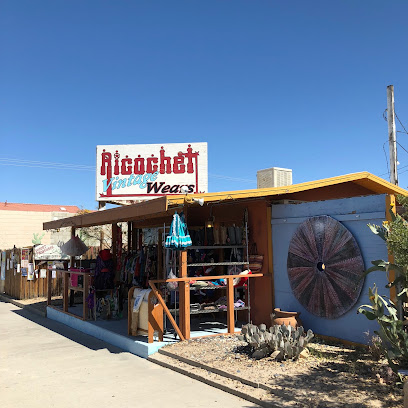
Time Echo Vintage
Explore unique vintage fashion at Time Echo Vintage in Joshua Tree, where history and style beautifully intertwine.
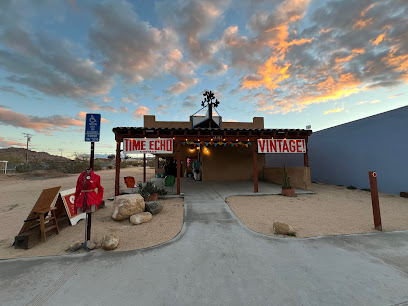
Essential bars & hidden hideouts
Joshua Tree Saloon
Experience the vibrant atmosphere and delicious grill cuisine at Joshua Tree Saloon, a must-visit restaurant in the heart of Joshua Tree, CA.
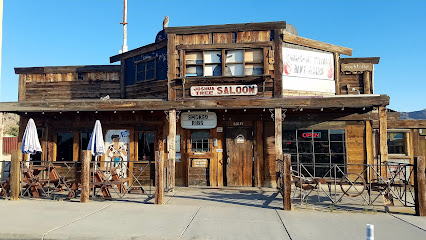
Crossroads Cafe
Discover the charm of Crossroads Cafe in Joshua Tree, where delicious diner favorites meet the breathtaking desert landscape.
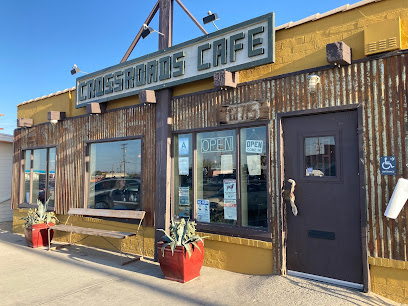
Applebee's Grill + Bar
Experience the heart of American dining at Applebee's Grill + Bar in Yucca Valley, where flavor meets family-friendly atmosphere.
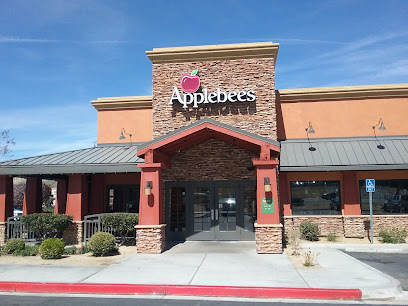
JT Country Kitchen
Experience the heart of American dining at JT Country Kitchen, a charming restaurant in Joshua Tree, CA, perfect for breakfast and lunch.
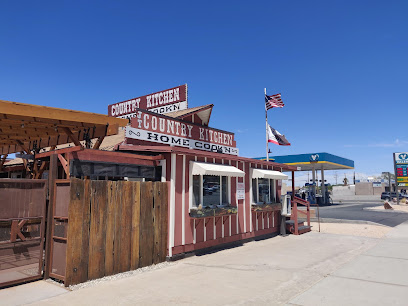
Sam's Indian Food & Pizza
Discover a culinary fusion of Indian flavors and classic pizza in the heart of Joshua Tree at Sam's Indian Food & Pizza.
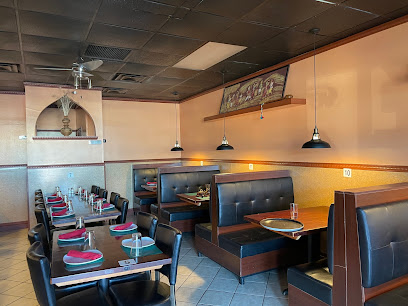
La Copine
Experience the vibrant flavors of New American cuisine at La Copine in Yucca Valley, where local ingredients meet innovative culinary artistry.
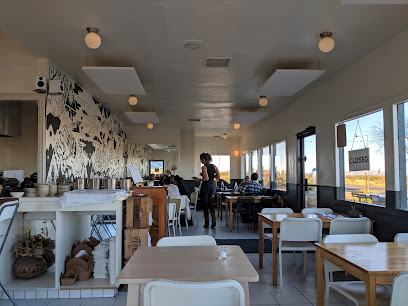
Castañeda's Mexican Food
Experience authentic Mexican cuisine at Castañeda's Mexican Food, a vibrant restaurant in Joshua Tree offering a delightful menu for every palate.
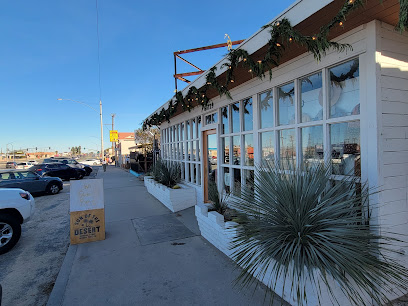
The Tiny Pony Tavern
Experience the heart of Yucca Valley at The Tiny Pony Tavern, where delicious grilled dishes and a vibrant atmosphere await all travelers.
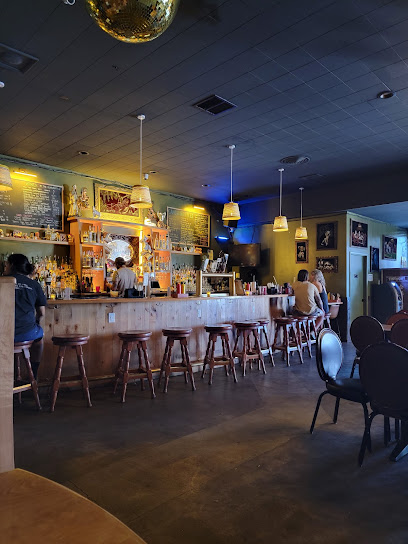
The Red Dog Saloon
Discover the unique blend of live music, delicious food, and rustic charm at The Red Dog Saloon in Pioneertown, California.
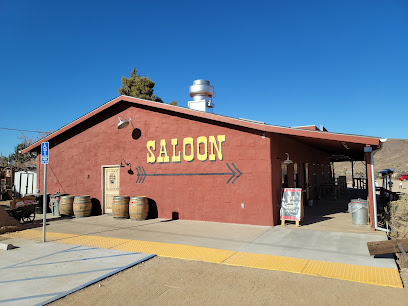
Royal Siam Cuisine Thai Restaurant
Experience the rich and vibrant flavors of Thailand at Royal Siam Cuisine, a top-rated Thai restaurant in Joshua Tree, California.
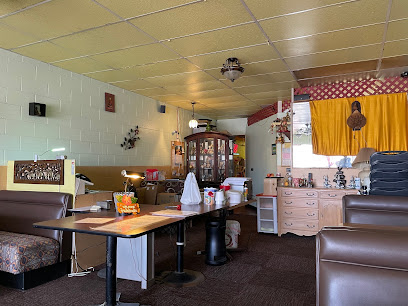
Giant Rock Meeting Room
Experience the vibrant culture of Yucca Valley at Giant Rock Meeting Room, where exquisite pizza meets art and live music in a community hub.
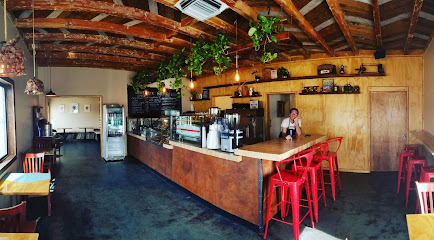
Sky High Pie
Discover the taste of the desert at Sky High Pie, where artisanal pizzas meet the breathtaking scenery of Joshua Tree.
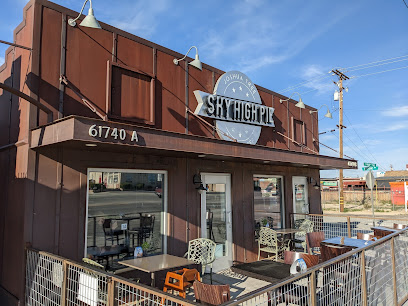
The Copper Room
Experience a unique blend of culinary delights and vibrant nightlife at The Copper Room in Yucca Valley, where every visit is a memorable adventure.
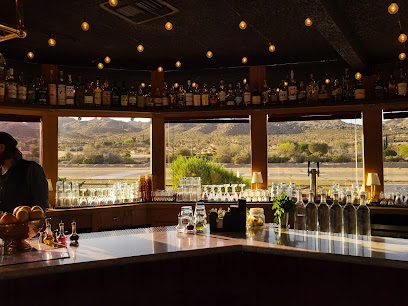
Más o Menos
Experience the vibrant atmosphere of Más o Menos, a cocktail bar in Joshua Tree offering exquisite drinks and a welcoming community spirit.
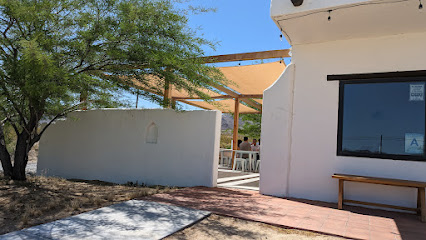
Local Phrases
-
- HelloHowdy
[haw-dee] - GoodbyeCatch ya later
[ketch yuh lay-ter] - YesYup
[yuhp] - NoNah
[nuh] - Please/You're welcomePlease/No problem
[pleez/no prob-lem] - Thank youThanks a bunch
[thanks uh buhnch] - Excuse me/SorryPardon me/My bad
[par-dn me/my bad] - How are you?Howdy, partner?
[haw-dee, pahrt-ner] - Fine. And you?Just dandy. You?
[just dan-dee. yuh?] - Do you speak English?You speak English?
[yuh speak ing-glish?] - I don't understandI'm lost in the sauce
[ahm lost in thuh sawss]
- HelloHowdy
-
- I'd like to see the menu, pleaseCan I peep the menu, please?
[can ah peep thuh men-yoo, please?] - I don't eat meatI'm a veg head
[ahm a-vej hed] - Cheers!Bottoms up!
[bot-ums up!] - I would like to pay, pleaseCan I settle up, please?
[can ah set-l up, please?]
- I'd like to see the menu, pleaseCan I peep the menu, please?
-
- Help!Send help!
[send help!] - Go away!Scram!
[skram!] - Call the Police!Ring up the fuzz!
[ring up thuh fuzz!] - Call a doctor!Get a doc on the line!
[get a doc on thuh line!] - I'm lostI'm all turned around
[ahm all turnd uh-round] - I'm illI'm under the weather
[ahm un-der thuh weh-thur]
- Help!Send help!
-
- I'd like to buy...I'm fixin' to purchase...
[ahm fiks-in to pur-chase...] - I'm just lookingI'm just browsin'
[ahm just brow-sin'] - How much is it?What's the damage?
[whuts thuh dam-ij?] - That's too expensiveThat's highway robbery
[thats hai-way rob-ree] - Can you lower the price?Can you do me a solid on the price?
[can yuh do me a sah-lid on thuh prahs?]
- I'd like to buy...I'm fixin' to purchase...
-
- What time is it?What's the haps?
[whuts thuh haps?] - It's one o'clockIt's high noon
[its hai noon] - Half past (10)Ten-thirty
[ten-thur-tee] - MorningSunup
[sun-up] - AfternoonHigh noon
[hai noon] - EveningSunset
[sun-set] - YesterdayYesteryear
[yes-ter-year] - TodayThis here day
[this heer day] - TomorrowMorrowsun
[mor-row-sun] - 1One
[wun] - 2Two
[too] - 3Three
[three] - 4Four
[for] - 5Five
[fahv] - 6Six
[siks] - 7Seven
[sev-un] - 8Eight
[ate] - 9Nine
[nine] - 10Ten
[ten]
- What time is it?What's the haps?
-
- Where's a/the...?Where's the...
[wheres thuh] - What's the address?What's the addy?
[whuts thuh ad-ee?] - Can you show me (on the map)?Can you point me (on the map)?
[can yuh point me (on thuh map)?] - When's the next (bus)?When's the next (bus)?
[whens thuh nekst (bus)?] - A ticket (to ....)A pass (to ....)
[a pass (to ....)]
- Where's a/the...?Where's the...
History of Joshua Tree
-
Long before the arrival of European settlers, the Joshua Tree area was inhabited by Native American tribes, primarily the Serrano and Cahuilla peoples. These tribes thrived in the desert environment, utilizing the diverse plant and animal life for food, medicine, and tools. The Joshua Tree, known scientifically as Yucca brevifolia, played a significant role in their daily lives, providing materials for basket weaving and other necessities.
-
In the mid-19th century, Mormon pioneers traveling westward gave the Joshua Tree its name. The tree's unique shape reminded them of the biblical story of Joshua raising his hands to the sky in prayer. This period marked the beginning of European-American exploration and settlement in the region, laying the groundwork for future development.
-
The late 19th century saw a surge in mining activity in the Joshua Tree area as prospectors searched for gold and other valuable minerals. The region’s arid landscape was dotted with mining camps, and remnants of these operations can still be seen today in places like Lost Horse Mine and Desert Queen Mine, offering a glimpse into the harsh life of the miners who once toiled there.
-
In the early 20th century, the homesteading movement brought new settlers to Joshua Tree. Under the Homestead Acts, individuals could claim land and establish farms. Many of these homesteaders were drawn by the promise of land ownership and the opportunity to start anew. Although farming proved challenging in the harsh desert environment, their efforts contributed to the development of the community.
-
In 1936, President Franklin D. Roosevelt designated Joshua Tree as a national monument, recognizing its unique geological features and biodiversity. This protection helped preserve the area's natural beauty and cultural heritage, leading to increased tourism and interest in conservation. The monument status paved the way for the establishment of the Joshua Tree National Park in 1994.
-
The mid-20th century saw Joshua Tree become a haven for artists, musicians, and writers seeking inspiration from its stark beauty and solitude. The region's distinctive desert modernism architecture also flourished during this time, with noted structures such as the Joshua Tree Inn attracting cultural figures like Gram Parsons. This artistic legacy continues today, with a vibrant community of creators calling Joshua Tree home.
-
In 1994, Joshua Tree National Monument was elevated to national park status as part of the California Desert Protection Act. This change highlighted the area's significance both ecologically and recreationally. Today, Joshua Tree National Park is a popular destination for visitors from around the world, offering opportunities for hiking, rock climbing, stargazing, and exploring its unique flora and fauna.
Joshua Tree Essentials
-
Joshua Tree is located in Southern California, approximately 130 miles east of Los Angeles and 30 miles northeast of Palm Springs. The nearest major airport is Palm Springs International Airport (PSP), which is about a 50-minute drive away. Alternatively, Los Angeles International Airport (LAX) is about a 2.5-hour drive. From either airport, you can rent a car or take a shuttle service to reach Joshua Tree. Public buses are limited in this area, so renting a car is the most convenient option.
-
Joshua Tree is best explored by car, as public transportation options are limited. Car rentals are available at nearby airports and in Palm Springs. Within the town, local taxis and rideshare services like Uber and Lyft can be used. Biking is another popular option for getting around, especially for shorter distances. For those interested in hiking, many of the park's trails are accessible from various parking areas.
-
The official currency is the US Dollar (USD). Credit and debit cards are widely accepted in Joshua Tree, including in most restaurants, shops, and hotels. However, it's a good idea to carry some cash for smaller establishments, especially in more remote areas. ATMs are available in the town for cash withdrawals.
-
Joshua Tree is generally a safe destination for tourists. However, like any travel destination, it is advisable to take standard precautions. Avoid leaving valuables in plain sight in your car, and be aware of your surroundings, especially in crowded areas. While the town itself has a low crime rate, it's always best to stay vigilant. Be cautious when hiking and always carry enough water, as temperatures can get extremely high.
-
In case of emergency, dial 911 for immediate assistance. The nearest hospital is Hi-Desert Medical Center, located in Joshua Tree. It's advisable to carry a basic first-aid kit and know the locations of the nearest medical facilities. For minor health issues, there are pharmacies in the town where you can purchase over-the-counter medications. Always inform someone of your plans if you are going on a hike or exploring remote areas.
-
Fashion: Do wear comfortable and weather-appropriate clothing, especially sturdy shoes for hiking. Avoid wearing heavy perfumes as they can attract insects. Religion: There are no specific religious customs to be aware of, but always respect the natural environment. Public Transport: As public transport is limited, do plan your transportation in advance. Greetings: Do greet people with a friendly hello or wave. Locals are generally welcoming and friendly. Eating & Drinking: Do try local eateries and support small businesses. Don't leave trash behind; always follow Leave No Trace principles.
-
To experience Joshua Tree like a local, visit the Joshua Tree Farmers Market held every Saturday morning for fresh produce and local crafts. Engage with the community at local art galleries and shops. Don't miss the Joshua Tree Music Festival if your visit coincides with it, as it offers a unique blend of music, art, and culture. For a quiet escape, explore the lesser-known trails such as the Black Rock Canyon or the Indian Cove area.
Trending Landmark in Joshua Tree
-
Joshua Tree National Park
-
Joshua Tree Visitor Center
-
Keys View
-
Joshua Tree Saloon
-
Sam's Indian Food & Pizza
-
Noah Purifoy Outdoor Desert Art Museum
-
Barker Dam
-
Castañeda's Mexican Food
-
Joshua Tree National Park Visitor Center
-
Desert Christ Park
-
Cliffhanger Guides - Joshua Tree Rock Climbing Adventures
-
Mojave Guides - Joshua Tree Rock Climbing Guides
-
Sky High Pie
-
The Station Joshua Tree
-
Joshua Tree Certified Farmers' Market
Nearby Cities to Joshua Tree
-
Things To Do in Palm Springs
-
Things To Do in Palm Desert
-
Things To Do in Temecula
-
Things To Do in Oceanside
-
Things To Do in Carlsbad
-
Things To Do in Irvine
-
Things To Do in Laguna Beach
-
Things To Do in Anaheim
-
Things To Do in Costa Mesa
-
Things To Do in Huntington Beach
-
Things To Do in Monterey Park
-
Things To Do in Pasadena
-
Things To Do in La Jolla
-
Things To Do in San Diego
-
Things To Do in Los Angeles













